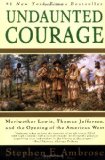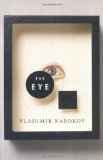Book Review: "Franklin and Lucy…" by Joseph Persico
April 10, 2008
Franklin Delano Roosevelt is the stuff of American myth, an untouchable, shining character whose presidency consistency rates as one of the most successful in the country’s history. His remarkable policies still echo in today’s landscape, his fireside chats and chin-up optimism the fodder of memorials and nostalgic World War II veterans.
But FDR’s golden aura obfuscates the complexity of his real life, his missteps and confusions, his deceits and his pains. We see something larger than life in FDR, a giant of a soul unyielding against significant physical disability and guiding a country at a violent crossroads. But what Joseph Persico gives us in “Frankin and Lucy” is not a formal story of the presidency. It’s a messier, sometimes tragic and maddening, look at the man, and the women who shaped him.
But before bringing in the ladies, Persico must chip away at the happy lore of FDR as magnanimous hero. In his early life, see, Roosevelt is jarringly unlikeable. Persico labels him a “Little Lord Fauntleroy” type, infantile and shapeless under the weight of his overbearing mother, Sara Delano. With his English-sounding accent and exclusive private school background, his golden mane and his conflict-free childhood, FDR at first seems effete and blank.
If his early life is meaningless, FDR as Harvard brat is a more deplorable character. Seemingly unburdened by any real personality, Roosevelt spent his college years joining social clubs and tippling with chums. Flirty, shallow, dandified, brutishly unaffected by anything suggesting emotion–and prone to fabrication.
FDR lied, indeed. He lied about scooping a big story at the Harvard Crimson, which led to glory for him and the newspaper. He lied about affairs. Later, he lied about his involvement in an anti-homosexual sting operation in 1920. For pleasure he requisitioned Navy ships and sailed them to his summer getaway, mistress and entire crew in tow.
By the time Persico introduces the women who will have vast influence on the rest of FDR’s life, it’s easy to feel ambivalent about the guy. Persico is impeccably aware of this. Initially he brushes off some of FDR’s shortcomings, like his tall tales, calling them “… quintessential Roosevelt, not quite dishonest, but an improvement on the truth that he persuaded himself was fact.”
But Persico is not negligent. He knows that the questions of morality are stuck in the craw of the book for its entire length, and will eventually circle back elegantly and readdress the ethical conundrums.
Persico shows us Eleanor Roosevelt: a sad, orphaned, homely, noble, pathetic, ultimately-triumphant character who veers in and out of FDR’s inner world. We meet Lucy (though FDR doesn’t until page 83, despite her serving as the book’s namesake), and Persico can say nothing bad about her, though his descriptions of her character initially lack much dimension.
She’s good, we hear. She’s lovely and charming and keeps Roosevelt in stitches (unlike stodgy, diffident wife Eleanor). Their affair (a foregone thing from the beginning of the book) is portrayed as desperate and passion-driven, hopeless but honorable.
For readers steeped our this particular modern American culture, with monogamy and fidelity apotheosized above most any virtue, FDR’s waywardness in romance is almost painful to read. And, though it would seem that the era in which this all occurred would be the one to suck in its breath, prudishly, with shock at his dalliances, it’s the modern context in which we shake our heads sadly.
The web expands. Other women: Missy LeHand, Dorothy Schiff, Daisy Stuckley. Some stand-in secretary-wives, others touchstones of stability.
And then, after faith in his inherent decency has been wearied: we see the president pummeled on all levels by polio, storming back at it with ferocity. Here is where FDR is truly born, where the women in his life integrate influences into a bolder character for him to bring into his greatest times of public service. Suddenly, he’s someone intriguing.
The women support, type, mull over, encourage and prod the crippled Roosevelt. They love and are ignored, often. The polio gave him something abstract to beat against. A needed hurdle. Adversity and the support of those close to him gave him the personal depth to be the president we know.
Through unflinching looks at the Roosevelts’ most intimate moments, their miseries and their betrayals, Persico will make you re-evaluate the relative import of personal foibles in the face of civic duty. We are asked to separate our personal moral convictions from those relevant to the American community–a conflict that has resurfaced, repeatedly, in recent history.
What Persico does with grace is to confuse us, charging us to reconsider. No longer is it clear who is right and wrong in FDR’s inner sanctum. Adultery, love, missed connections, lost letters, loneliness. The metamorphosis of a peevish youth of questionable depth and minimal personality into the transcendent, multi-layered man of history. Aching sacrifices of truth and love. Persico gives us this complex personal journey, with redemption, in a well-crafted story of love, longing, women and the FDR we thought we knew.
Recently Reviewed
Get the Books
Read my Reviews
Related Posts
- I'm a Reviewer!
March 25, 2008 - Book Review: The Monsters of Templeton by Lauren Groff
August 11, 2008 - Book Review: "Peripheral Vision" by Patricia Ferguson
December 19, 2008 - Book Review: "Then We Came to the End" by Joshua Ferris
September 17, 2008 - Book Review: "What we Believe but Cannot Prove: Science in the Age of Certainty", Edited by John Brockman
August 22, 2008





I decided to put a bit more effort into the review this time–it took me over an hour to write it! I actually took copious notes while reading, something I haven’t done in some time.